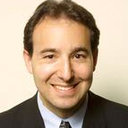Recovery of pain control by intensive reprogramming after loss of benefit from motor cortex stimulation for neuropathic pain.
کلید واژه ها
خلاصه
BACKGROUND
Motor cortex stimulation (MCS) may serve as an adjunct in managing neuropathic pain after other conservative and interventional methods have failed. However, the magnitude and duration of the benefit are highly variable, with a significant percentage of patients losing pain relief over time. We investigated whether intensive reprogramming could recapture the beneficial effects of MCS.
METHODS
Six patients who had previously undergone MCS implantation for neuropathic pain but had lost benefit were brought back for 1-5 days of intensive reprogramming. Four patients were evaluated as inpatients while the others were seen as outpatients during multiple visits over several days. Several hours a day were spent with each patient. Patients completed visual analog scale (VAS) ratings at intervals throughout the reprogramming period to judge effectiveness of stimulation. Pre- and postadjustment VAS were compared using a paired t test.
RESULTS
The patients' average age was 50 years (range 26-71). The diagnoses were trigeminal neuropathic pain (2 patients), complex regional pain syndrome I (2), phantom limb pain (1) and poststroke pain (1). The mean duration of pain was 6 years. The MCS benefit had initially lasted for a mean of 7.16 months (range 2-18 months). After reprogramming, 5 of 6 patients experienced improvement in pain. Average VAS scores decreased from 7.44 to 2.28 (p < 0.001) in those patients who responded to reprogramming. The average stimulation parameters in these patients were 5 V amplitude (range 1.7-10), 313 micros pulse width (range 240-390) and frequency of 84 Hz (range 55-130). Three patients experienced seizures during reprogramming. The mean seizure threshold was 8.9 V. No patient experienced seizures at their therapeutic settings. Pain control has been maintained after discharge.
CONCLUSIONS
Intensive reprogramming can recapture the benefit of MCS in patients who have lost pain control. The use of broad dipoles using two contacts rather than one contact of the 1 x 4 electrode array improved the ability to recapture beneficial stimulation. There is a significant risk of seizures during aggressive reprogramming.


